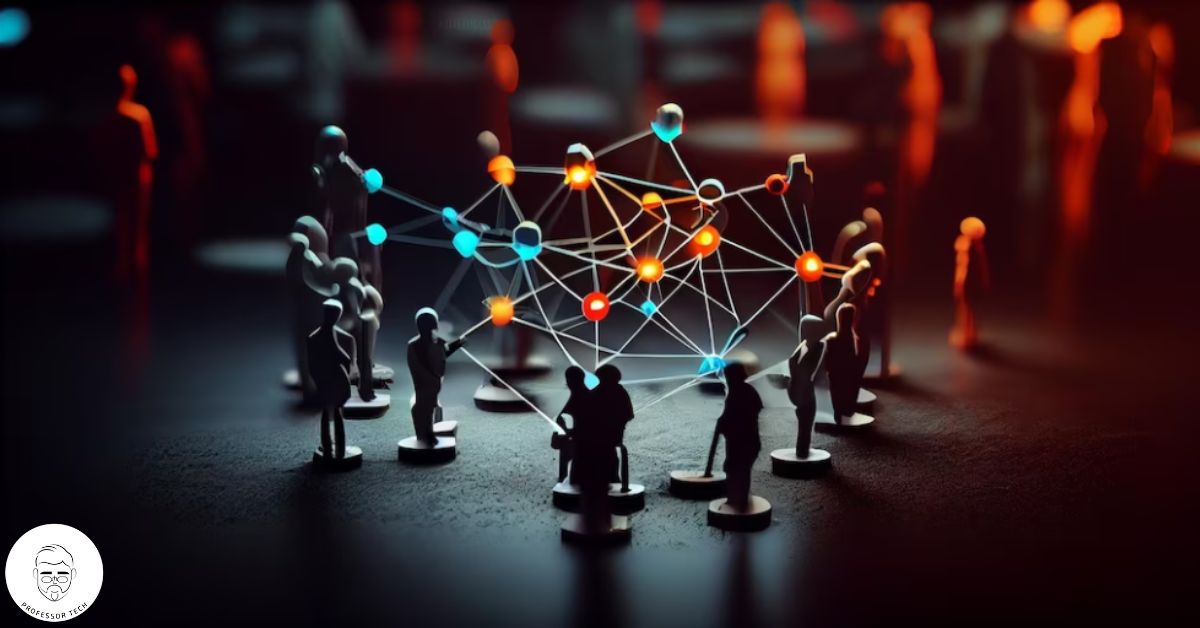In the ever-evolving landscape of the 21st century, the symbiotic relationship between tech and social change stands as a defining feature. From the historical precedents of technological revolutions to the intricate dynamics of the digital era, this article explores the multifaceted impact of technology on the fabric of our societies.

Introduction
As we navigate the complex interplay between technology and social change, it’s essential to recognize the profound shifts that have marked different epochs of human history. The relentless march of innovation not only shapes the tools we use but intricately influences the way we live, connect, and perceive the world around us.
Historical Perspectives
Throughout history, technological advancements have catalyzed societal transformations. From the Industrial Revolution that reshaped economies to the Information Age that democratized access to knowledge, each technological leap has left an indelible mark on the structure and dynamics of human societies.
The Digital Revolution
In the contemporary landscape, the digital revolution takes center stage. The proliferation of digital technologies, from smartphones to artificial intelligence, has ushered in an era where the pace of information exchange and connectivity is unprecedented. This digital age acts as a catalyst, accelerating the rate at which social change unfolds.

Globalization and Tech Integration
Technology serves as the backbone of globalization, collapsing geographical barriers and fostering an interconnected world. Digital platforms enable global collaboration, trade, and cultural exchange, reshaping societies into tightly woven global networks.
Challenges of Accelerated Innovation
However, the rapidity of technological innovation brings forth challenges. Critics raise concerns about the potential consequences of unchecked progress, including job displacement, ethical dilemmas, and the environmental impact of a throwaway culture driven by tech.
Human Connection in the Digital Era
While technology connects us across vast distances, there’s a simultaneous concern about its impact on human connections. The paradoxical nature of the digital era, where we are more connected virtually but potentially more isolated in reality, prompts contemplation on the true essence of human connection.

Economic Impacts and Job Dynamics
The integration of technology into various industries transforms job landscapes. Automation, artificial intelligence, and the gig economy redefine traditional employment structures, posing both opportunities and challenges for the workforce.
Ethical Considerations in Tech Development
In the race for technological supremacy, ethical considerations often take a backseat. From privacy concerns in the age of surveillance to the ethical implications of artificial intelligence, navigating the ethical minefield of technological development becomes imperative.
Environmental Sustainability
As technology advances, so does its environmental footprint. The production and disposal of electronic devices contribute to e-waste, while the energy consumption of data centers poses challenges to sustainability. Striking a balance between technological progress and environmental responsibility is paramount.
Technological Inclusivity vs. Inequality
While technology has the potential to bridge societal gaps, it also runs the risk of exacerbating existing inequalities. Access to technology is not uniform, leading to a digital divide that manifests in disparities in education, economic opportunities, and overall societal inclusion.
The Role of Big Data in Shaping Societies
Big data analytics plays a pivotal role in shaping the trajectory of societies. From predicting consumer behavior to informing policy decisions, the harnessing of massive datasets introduces new possibilities and challenges for governance and societal development.

Tech-Driven Cultural Transformation
Cultural norms and values undergo a metamorphosis in the face of technological advancements. From the influence of social media on cultural perceptions to the global reach of online content, technology actively participates in the reshaping of cultural landscapes.
The Challenge of Regulating Tech Advancements
Creating effective regulations that keep pace with the rapid evolution of technology is a formidable task. The dynamic nature of innovation requires adaptive and comprehensive regulatory frameworks to address ethical concerns, privacy issues, and potential societal risks.
Balancing Progress and Human Well-being
Amidst the fervor for technological progress, the ultimate goal is to strike a balance that prioritizes human well-being. From mental health considerations in the digital age to ensuring societal cohesion, a conscientious approach to technology is vital to navigating the complexities of the modern world.
Conclusion
In conclusion, our modern life is defined by the complex tango between technology and social change. At this juncture of unparalleled invention, it is critical to embrace the revolutionary promise of technology while also acknowledging its possible drawbacks and difficulties. To create a future that benefits all of mankind, the cohabitation of technology and social change necessitates a deliberate, ethical, and inclusive approach.
How can technology bridge social gaps?
Technology can bridge social gaps by providing access to information, education, and opportunities to underserved communities.
What ethical considerations are associated with AI development?
Ethical considerations in AI development include issues of bias, transparency, and the potential impact on employment.
How can individuals reduce their environmental impact in the digital age?
Individuals can reduce their environmental impact by recycling electronic devices, minimizing e-waste, and supporting sustainable technology practices.
Is the digital divide a global issue?
Yes, the digital divide is a global issue, with disparities in access to technology and digital resources prevalent across different regions.
How can governments regulate technology without stifling innovation?
Governments can regulate technology through adaptive frameworks that address ethical concerns, privacy issues, and potential societal risks while fostering innovation.



